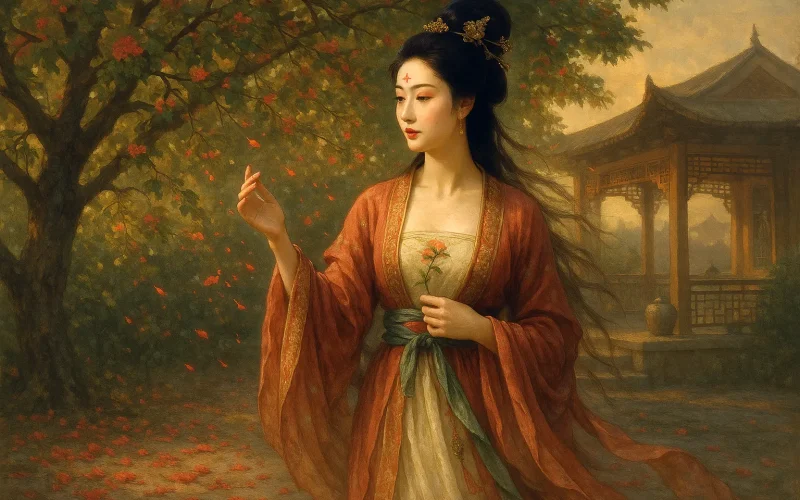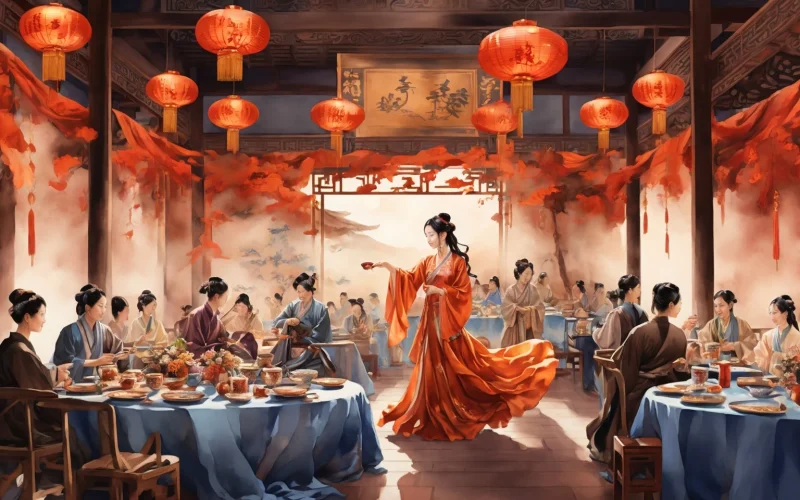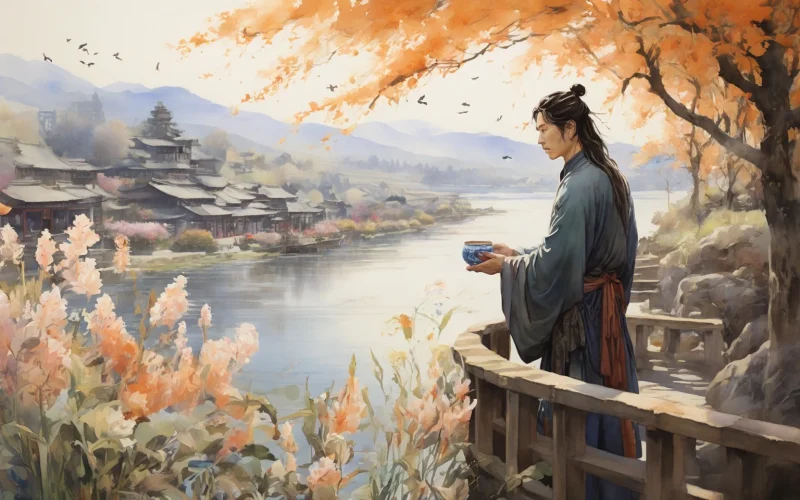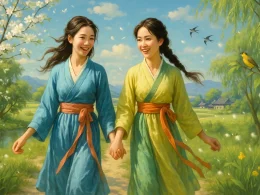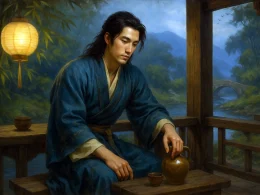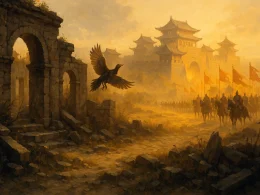I regret to be late to seek for blooming spring;
The flowers not in full bloom in years past I've seen.
The strong wind blows down flowers which sway and swing,
The tree will be laden with red fruit and leaves green.
Original Poem:
「叹花」
杜牧
自是寻春去校迟,不须惆怅怨芳时。
狂风落尽深红色,绿叶成阴子满枝。
Interpretation:
This poem is closely related to Du Mu’s personal experience. In his youth, while traveling in Huzhou, Du Mu met a local woman. They promised to marry each other in ten years. However, by the time Du Mu became the governor of Huzhou, fourteen years had passed, and the woman had already married another man and had two sons. Du Mu lamented this situation, and thus, he wrote this poem. It was first seen in Gao Yanxiu’s Tang Que Shi from the late Tang Dynasty.
First Couplet: “自是寻春去校迟,不须惆怅怨芳时。”
“I should have sought the spring earlier, but missed it; the flowers have already fallen, so there’s no need to regret the passing of youth.”
The poet expresses regret over the lost time of youth with the line “I should have sought the spring earlier.” Then, he comforts himself, stating that there’s no need to mourn the passing of beauty and youth. The tone of self-comfort feels particularly helpless and resigned.
Second Couplet: “狂风落尽深红色,绿叶成阴子满枝。”
“The strong wind blows away the last red flowers, and the green leaves grow thick, with fruit hanging from the branches.”
Although this line seems to describe nature, it is actually an allegory for the passing of youth and the arrival of maturity and fertility. The flowers of a young girl’s youth have faded, giving way to the season of growth and motherhood.
Writing Features:
This poem uses the technique of "metaphor" to reflect the changes in life through natural phenomena. The poet symbolizes the girl’s youth and maturity by the withering of spring flowers and the fullness of fruit. The metaphor is subtle yet emotionally rich. The poem intertwines self-comfort and regret, showing clever composition with simple and implicit language.
Overall Appreciation:
The poem uses vivid natural imagery to express the poet’s lament and helplessness over the loss of youth. Through the contrast between “seeking spring late” and “youth has already passed,” the poet conveys the sadness and regret caused by missed opportunities. Although the poet expresses self-comfort, it does not hide the underlying sense of loss and regret. This clever metaphor presents both simplicity and depth of emotional layers, moving the reader deeply.
Insights:
This poem offers insight into the unrelenting nature of time and the impermanence of life. By describing the spring, the poet alludes to the fleeting nature of youth and beautiful moments in life. Though the poet attempts to mask his sorrow through self-comfort, time, once passed, cannot be returned. The poem reminds us to cherish the present and seize the precious moments in life, without excessive regret for missed opportunities. It emphasizes the importance of accepting and adapting to life's changes. In the face of loss, both rationality and self-comfort are crucial—although time cannot reverse itself, we can choose to accept and move forward with a calm heart.
Poem translator:
Xu Yuan-chong (许渊冲)
About the poet:
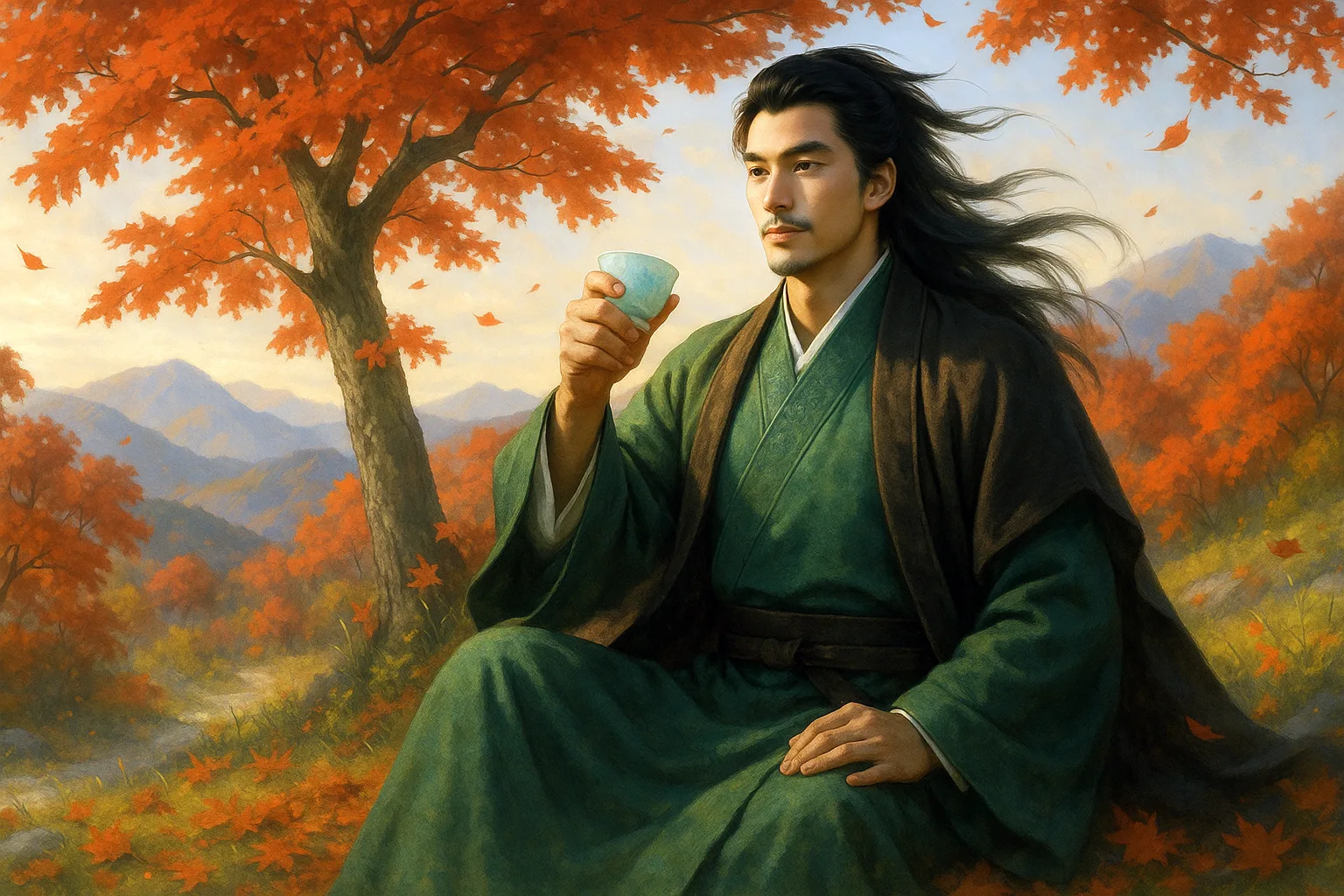
Du Mu (杜牧), 803-853 AD, was a native of Xi'an, Shaanxi Province. Among the poets of the Late Tang Dynasty, he was one of those who had his own characteristics, and later people called Li Shangyin and Du Mu as "Little Li and Du". His poems are bright and colorful.






